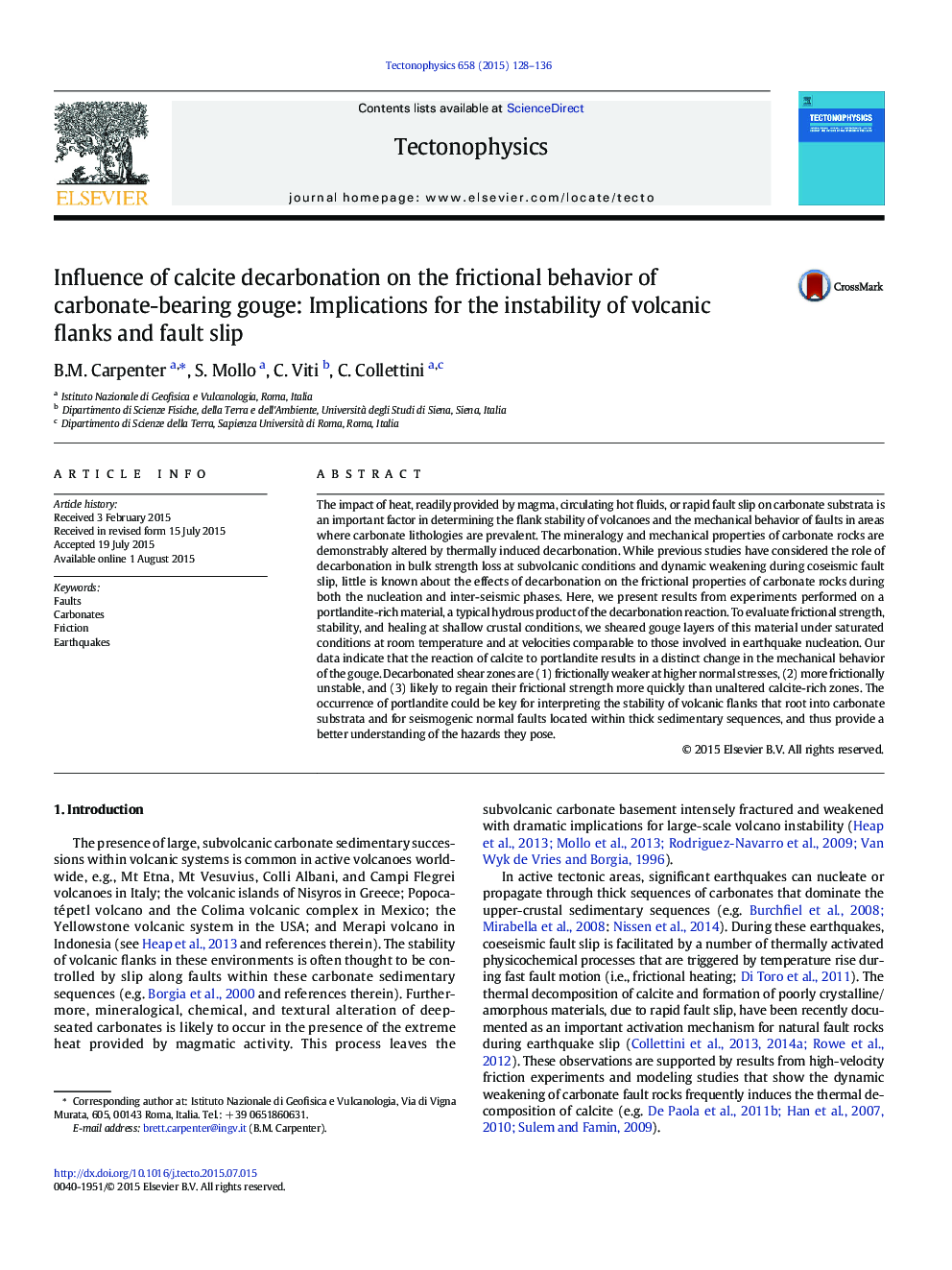| کد مقاله | کد نشریه | سال انتشار | مقاله انگلیسی | نسخه تمام متن |
|---|---|---|---|---|
| 4691532 | 1636737 | 2015 | 9 صفحه PDF | دانلود رایگان |

• Portlandite is a stable reaction product of the decarbonation reaction.
• Experiments performed to study the frictional behavior of portlandite gouge.
• Portlandite is weaker and more frictionally unstable than unreacted calcite.
• Results consistent with observed fault slip in volcanic and tectonic environments.
The impact of heat, readily provided by magma, circulating hot fluids, or rapid fault slip on carbonate substrata is an important factor in determining the flank stability of volcanoes and the mechanical behavior of faults in areas where carbonate lithologies are prevalent. The mineralogy and mechanical properties of carbonate rocks are demonstrably altered by thermally induced decarbonation. While previous studies have considered the role of decarbonation in bulk strength loss at subvolcanic conditions and dynamic weakening during coseismic fault slip, little is known about the effects of decarbonation on the frictional properties of carbonate rocks during both the nucleation and inter-seismic phases. Here, we present results from experiments performed on a portlandite-rich material, a typical hydrous product of the decarbonation reaction. To evaluate frictional strength, stability, and healing at shallow crustal conditions, we sheared gouge layers of this material under saturated conditions at room temperature and at velocities comparable to those involved in earthquake nucleation. Our data indicate that the reaction of calcite to portlandite results in a distinct change in the mechanical behavior of the gouge. Decarbonated shear zones are (1) frictionally weaker at higher normal stresses, (2) more frictionally unstable, and (3) likely to regain their frictional strength more quickly than unaltered calcite-rich zones. The occurrence of portlandite could be key for interpreting the stability of volcanic flanks that root into carbonate substrata and for seismogenic normal faults located within thick sedimentary sequences, and thus provide a better understanding of the hazards they pose.
Journal: Tectonophysics - Volume 658, 25 September 2015, Pages 128–136